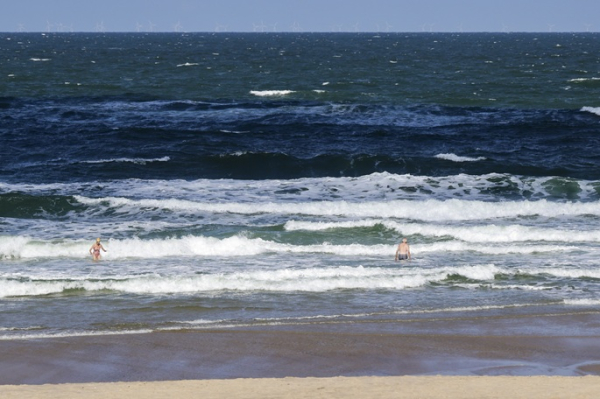Germany sounds alarm as North Sea hits record summer temperatures

The North Sea has experienced record temperatures this summer, rising 2 degrees Celsius above long-term averages in many areas, German authorities said on Tuesday, reported dpa.
The Federal Maritime and Hydrographic Agency (BSH) said preliminary results suggest the North Sea had its "warmest summer on record," ahead of the previous highs of 2003 and 2014.
Surface temperatures in the body of water were recorded at 15.7 degrees over June, July and August.
Extreme temperatures reaching 2 degrees above average were measured over large areas in the western and south-western North Sea, up to the English Channel.
The German Bight and the eastern North Sea – off the coasts of Norway and western Denmark – were up to 1.3 degrees warmer than usual.
According to the Hamburg-based BSH, the summer of 2025 followed the North Sea's warmest spring on record, in another sign of advancing global heating.
Meanwhile, the Baltic Sea also saw excessive temperatures, settling at an average of 16.7 degrees according to preliminary analyses.
Off Germany's north-eastern coast, the sea was up to 1.5 degrees warmer than usual, while temperatures were 2 degrees higher than average further north.
"The Baltic Sea is warming faster than the North Sea in the long term. Our data confirms this," said Kerstin Jochumsen, head of the oceanography department at the BSH. "Since 1990, the Baltic Sea has become almost 2 degrees warmer on average."
In addition to warmer average temperatures, extreme events such as marine heatwaves are also becoming longer and increasingly frequent.
Earlier this year, a BSH measuring station in the Baltic Sea recorded a 55-day marine heatwave, the longest since measurements began in 1989.
- Germany
- North Sea
- Temperatures
Source: www.dailyfinland.fi
